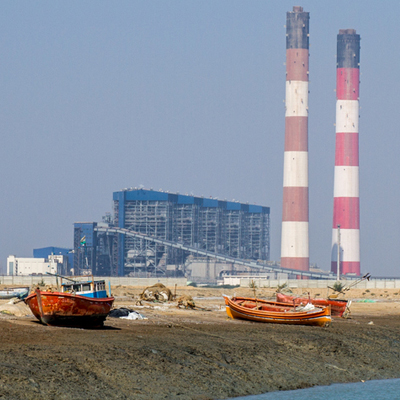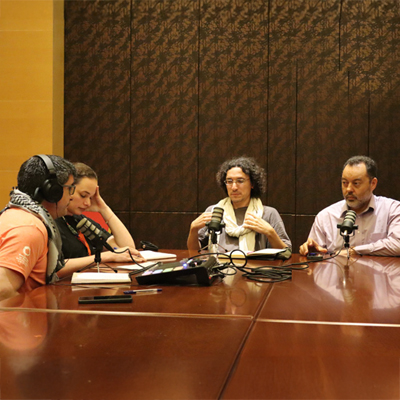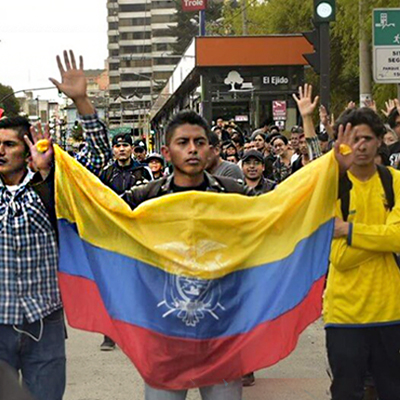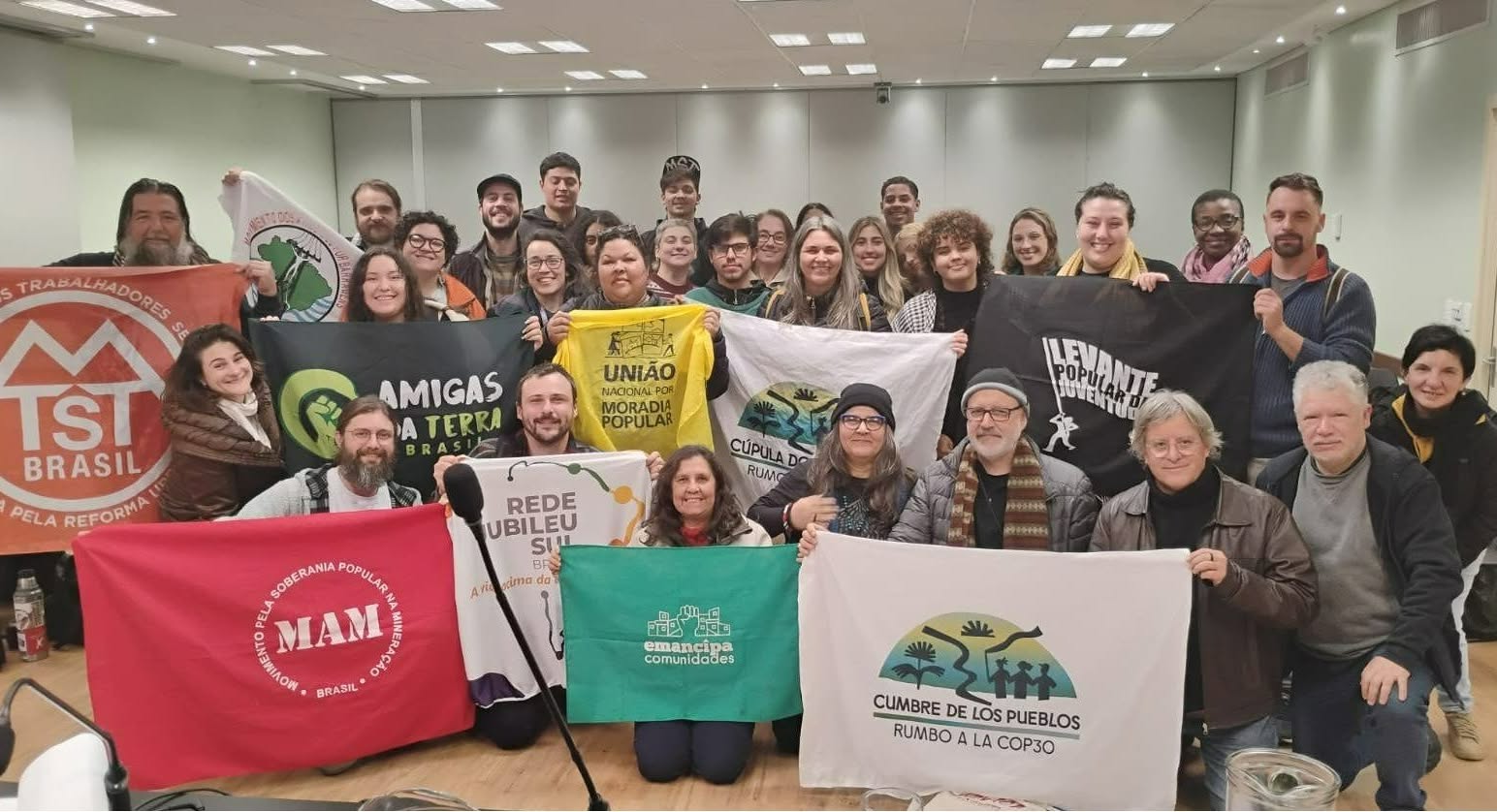A complete shift away from dirty energy systems towards 100% renewable energy in Africa is possible
New report launched by Friends of the Earth Africa sets out a Just Recovery Renewable Energy Plan for the continent
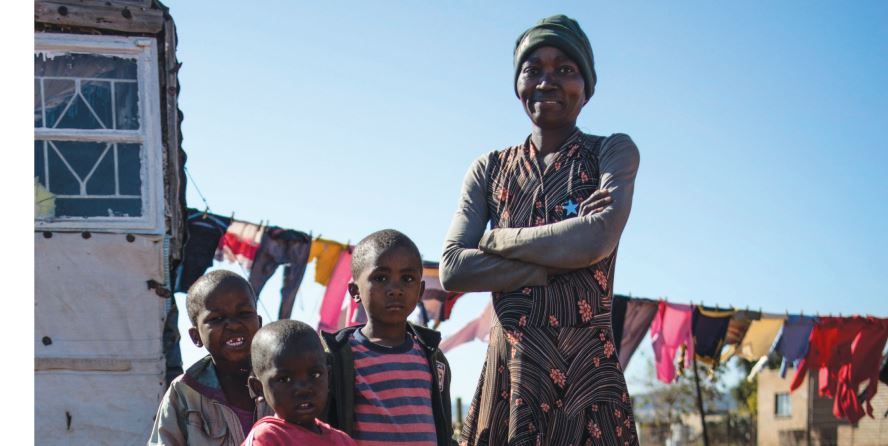 FoE Africa
FoE Africa
Three-quarters of those without access to electricity now live in Africa, a share that has risen over recent years. The economic effects of Covid-19 have only increased the number of people unable to access electricity and who were forced into energy poverty. In this context, Friends of the Earth Africa has launched a report that analyses this situation and outlines a plan towards building a just recovery based on a 100% renewable energy system for the peoples of Africa.
“The plan found that a complete shift from current dirty energy systems to achieve 100% Renewable Energy in Africa is technically and financially feasible, with an annual investment requirement of around US$130 billion per year. It lays out clear targets for this vision, with over 300GW of new renewable energy by 2030, as agreed by the African Union, and over 2000GW by 2050. It also shows that the finance and investment needed to achieve the 100% renewable energy goal can be done through public finance from the global North, ending tax dodging and dropping the debt,” states Friends of the Earth Africa in a press release.
A webinar with key climate justice campaigners from Africa was held on 1 September to provide more insights into the plan. Panelists included dipti Bhatnagar, Coordinator of the Climate Justice and Energy program at Friends of the Earth International and Kwami Kpondzo from Friends of the Earth Togo.
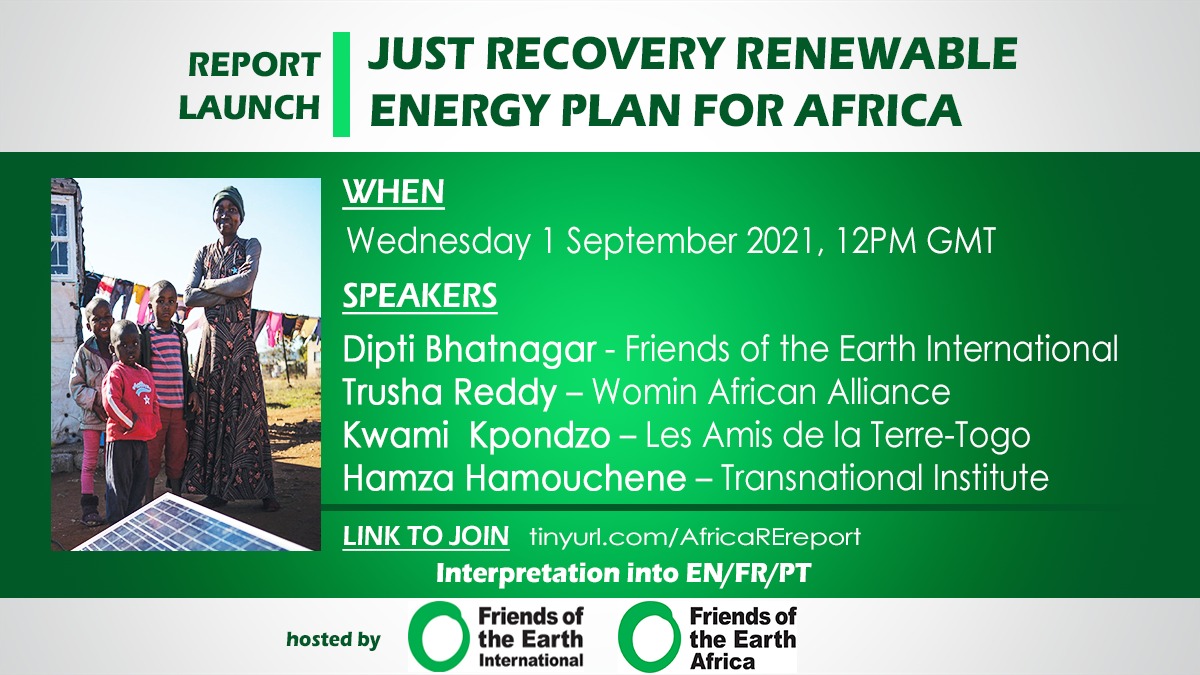
“We need an energy system that is socially-owned, democratic, renewable, serves people, protects biodiversity, strengthens land rights, promotes gender justice and doesn’t lead to increased extractivism,” said Bhatnagar during the webinar.
The report shows that approximately US$130 billion is needed annually to achieve the goal of 100% renewable energy in Africa, and it clearly identifies the sources of this funding.
“Public investment in the transition is essential. This transition must be under the control of communities and democratically elected representatives. It cannot be left to the private sectors and companies,” stated Hamza Hamouchene of the Transnational Institute, who also spoke during the webinar.
Another important source of funds to enable this Just Transition must come from the ecological debt the global North owes the global South: “Most of the funding must come from the global North through the payment of the ecological debts and climate reparations that must be paid to countries in the continent. Trade relations must be transformed towards more fairness and equity,” explained Hamouchene.
“The money exists, the political will is what we need to be fighting for,” added Bhatnagar.
Kwami Kpondzo referenced the situation in West Africa, highlighting the need to monitor the commitments made by regional institutions and banks such as the West African Development Bank, and to continue insisting that these commitments are not enough. “They still fund fossil fuels, rather than invest in renewable clean energy,” he declared.
“It is time for African governments, public and private financial institutions to end their interest and investment in dirty energy in Africa and open the doors further for democratised, low-cost renewable energy accessible to all, including women, youth, local communities and indigenous peoples,” he added. “We need to keep fighting.”
Trusha Reddy, Energy and Climate Justice Programme Head at WoMin African Alliance, highlighted that including feminist perspectives in the Just Transition towards renewable energy is essential.
The majority of the population across Africa are rural-based peasant farmers and the majority of those are women, who are primarily responsible for food production and preparation and the care of communities. “All of these gender-prescribed roles require energy at every single level to be able to create a sustainable community. Any renewable energy policy or implementation that doesn’t factor this in is in danger of actually reinforcing patriarchy, contributing to the underdevelopment of people, particularly women in these rural communities,” she stressed.
Meanwhile, in an interview with Real World Radio, Ferrial Adam, Friends of the Earth Africa’s Climate Justice and Energy Coordinator, said, “Renewable energy is the one way in which we can decentralise our energy resources and get energy to as many people as possible. So it is not only about if this is feasible technically, it is also about what is needed in terms of the demand,” she stressed.
In terms of employment, Friends of the Earth Africa’s Just Recovery Renewable Energy Plan highlights the potential to create seven million new jobs in renewable energy. “We need to move towards a just transition, so as we shut down dirty energy power stations, we need to re-skill people,” added Adam.
Hamza Hamouchene shared this view: “We need to find a way of involving workers in the oil industry in discussions around the transition and green jobs. The transition won´t take place without them, therefore it is of paramount importance to start involving the trade unions around this issue,” he concluded.
Read the full report here.



